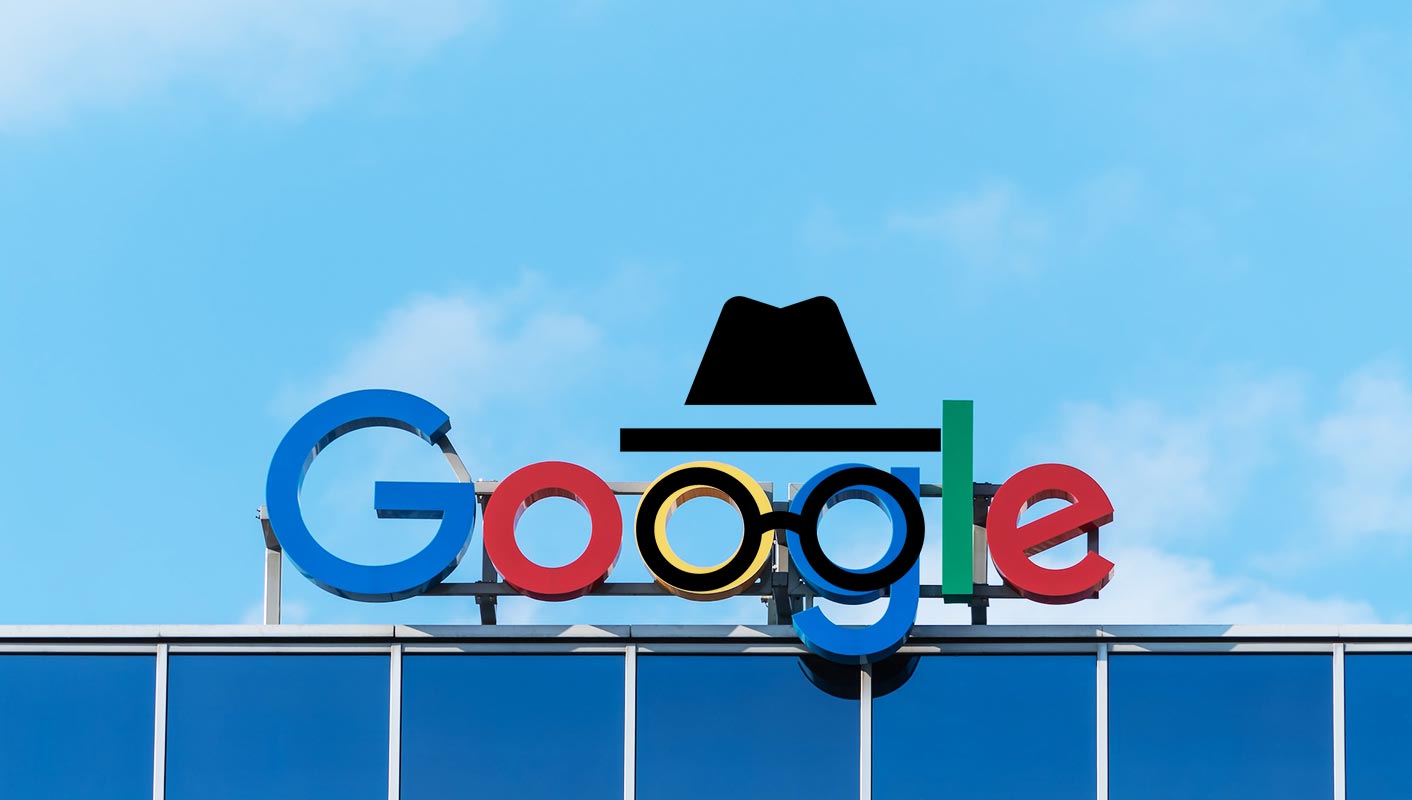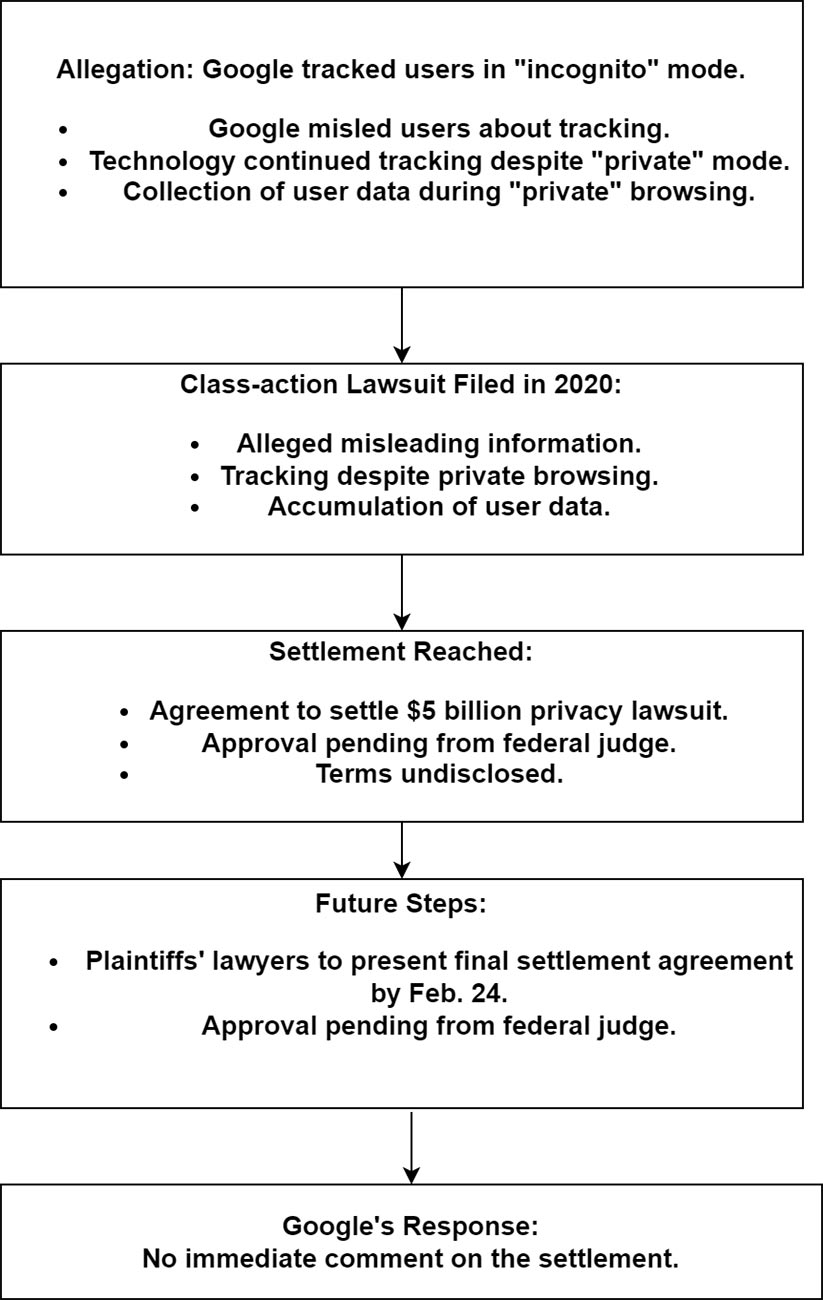Google, a renowned tech giant known for its innovation, became embroiled in a legal dispute concerning its ‘incognito’ mode, a touted haven for private browsing. The $5 billion privacy lawsuit unveiled allegations contradicting Google’s claims of the incognito mode’s secrecy. This Lawsuit’s layers span from its inception to the legal skirmishes, unraveling a complex narrative. It sheds light on the divergence between Google’s assurances and the actual functionality of this browsing feature. Exploring its roots, legal contentions, and potential outcomes opens a window into the pivotal facets of internet privacy. This legal saga questions Google’s stance and holds implications for the broader landscape of online privacy, hinting at a potential reconfiguration of digital trust and data privacy norms.
Google Incognito Lawsuit
The Lawsuit, initiated in 2020, unveiled a staggering revelation: Google purportedly misled users by assuring them that their internet activities would remain untracked while in incognito mode. This seemingly secure sanctuary for web exploration allegedly fell short of its promise, leaving users vulnerable to pervasive tracking mechanisms.
The flow of the Lawsuit

Background of the Google Incognito Lawsuit
Allegations Against Google
The heart of the matter revolves around Google’s alleged clandestine data collection despite users opting for the incognito mode. The plaintiffs contended that Google’s intricate web of advertising technologies continued to compile comprehensive dossiers of users’ online endeavors, undermining the essence of privacy.
Misconceptions Around Incognito Mode
Users’ understanding of incognito mode as an impregnable shield against tracking clashed with the Lawsuit’s assertions. The Lawsuit illuminated the dichotomy between users’ expectations of privacy and the stark reality of data collection practices, fostering a debate on digital trust.
Deal of the Day
Legal Proceedings
The legal battle unfolded as plaintiffs sought justice for the alleged breach of trust. The Lawsuit’s filing served as a clarion call, signaling Google’s accountability regarding its incognito mode’s privacy claims.
Filing of the Lawsuit
In 2020, the Lawsuit materialized, challenging Google’s assertions of safeguarding users’ privacy while browsing incognito. The litigation aimed to unravel the veracity of Google’s claims and hold the tech giant accountable for its data collection practices.
Google’s Defense and Counterarguments
Amidst mounting allegations, Google presented its defense, refuting the accusations against its incognito mode. The legal tussle ensued with counterarguments and debates, culminating in a juncture where the scales of justice sought equilibrium.
Details of the Google Incognito Lawsuit Settlement
The recent events brought forth a settlement shrouded in anticipation and speculation.
Approval Process
The settlement, though announced, awaits the federal judge’s nod, signifying its validity and acceptance as an amicable resolution.
Estimated Terms of the Settlement
While the precise terms remained undisclosed, the Lawsuit initially sought $5 billion for the affected users. The plaintiffs’ legal counsel anticipates presenting the court with the final settlement agreement by February 24, signaling a potential conclusion to this legal saga.
Public Perception and Reactions
The Lawsuit rippled through public consciousness, igniting digital privacy concerns and debates.
Users’ Concerns About Privacy
Users grappled with the disturbing reality that their presumed private browsing harbored insidious tracking mechanisms. This realization sparked apprehensions about the fragility of online privacy in the digital age.
Impact on Google’s Reputation
The Lawsuit’s reverberations extended beyond legal corridors, impacting Google’s standing in the public eye. It raised poignant questions about trust, accountability, and the ethical underpinnings of tech conglomerates.
Future Implications and Changes
The aftermath of this Lawsuit harbors prospects for transformative changes in internet privacy and tech practices.
Possible Alterations in Incognito Mode
The settlement’s aftermath could pave the way for redefining incognito modes across browsers, reinforcing users’ trust by aligning features with promised privacy assurances.
Lessons Learned by Tech Giants
The Lawsuit serves as a poignant lesson for tech behemoths, emphasizing the imperative of transparency, ethical data practices, and aligning user expectations with actual functionalities.
FAQs
Is incognito mode genuinely private?
Incognito mode merely prevents your browsing history from being stored locally. However, your activities can still be tracked by websites and service providers.
How can users enhance their online privacy?
Employing VPNs and blockers and being cautious with data sharing can fortify online privacy beyond incognito modes.
Will this lawsuit impact Google’s future privacy policies?
The Lawsuit might catalyze Google to reassess and potentially modify its privacy policies and modes to rebuild user trust.
What lessons can other tech companies draw from this Lawsuit?
Transparency, adherence to promised functionalities, and user-centric data practices are pivotal in fostering trust and averting similar litigations.
When can users expect changes in incognito modes?
Any alterations following the settlement might take time, contingent upon the court’s approval and subsequent technical modifications.
Wrap Up
The Google incognito lawsuit encapsulates the volatile intersection of user expectations, technological advancements, and ethical obligations within today’s digital terrain, where privacy assurances often clash with the realities of data practices. This legal saga reverberates as a crucial litmus test for the delicate equilibrium between user trust and technology capabilities, echoing a broader discourse on ethical responsibilities in the digital realm.
As the settlement’s specter looms, its implications echo far beyond the courtroom, heralding a potential paradigm shift in internet privacy and user reliance on tech behemoths. It signifies a pivotal moment, poised to redefine the contours of digital trust and accountability, urging a reevaluation of tech giants’ roles in safe giants user data and upholding the sanctity of privacy in an increasingly interconnected and data-driven world.

Selva Ganesh is the Chief Editor of this Blog. He is a Computer Science Engineer, An experienced Android Developer, Professional Blogger with 8+ years in the field. He completed courses about Google News Initiative. He runs Android Infotech which offers Problem Solving Articles around the globe.



Leave a Reply